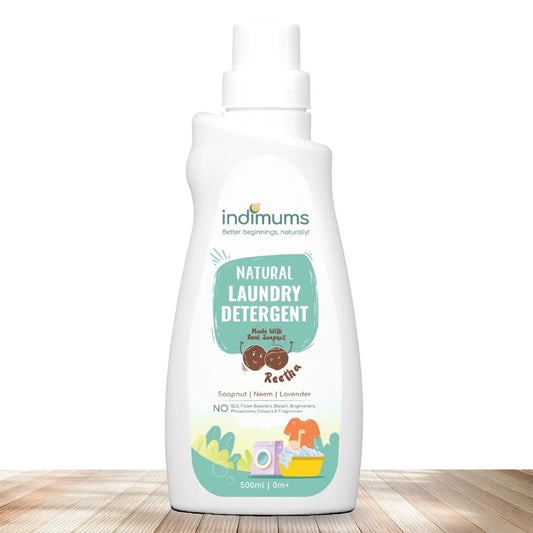Cradle cap, also known as infantile seborrheic dermatitis, is a common concern among newborns and infants. Newborn cradle cap is characterised by flaky, dry skin on a baby's scalp, often appearing as crusty patches that may cause discomfort.
While infant cradle cap is harmless and usually resolves on its own, many parents look for effective ways to alleviate its symptoms and provide relief for their baby's sensitive skin. Using the right baby shampoo can help gently cleanse the scalp and manage the condition without irritation.
Understanding Cradle Cap and Infant Scalp Conditions
Baby Dandruff: Cradle cap is often referred to as baby dandruff due to its similarity in appearance to the scalp condition seen in adults.
Pediatric Seborrheic Dermatitis: Medically termed as seborrheic dermatitis, this condition affects not only the scalp but also other areas rich in oil glands, such as the face and diaper area.
Flaky Scalp in Babies: The presence of flaky, dry skin on a baby's head is a hallmark symptom of cradle cap.
Dry Skin on Baby's Head: Infants are prone to dry skin, especially on their delicate scalp, which can contribute to the development of cradle cap.
Treating and Preventing Cradle Cap in Babies
Natural Remedies for Baby Dandruff: Opting for natural remedies can be gentle yet effective in treating cradle cap. Look for baby products derived from natural ingredients like Soapnut, known for its mild and cleansing properties.
Baby Shampoo for Dandruff: Choosing the right baby shampoo is crucial in managing cradle cap. Look for products specifically formulated to be gentle on a baby's delicate scalp while effectively cleansing and moisturizing.
Prevention of Cradle Cap: Regular scalp care is key to preventing the recurrence of cradle cap. Gentle washing with a mild baby shampoo and regular moisturization can help keep your baby's scalp healthy and free from flakiness.
Infant Skin Care Tips: Besides addressing cradle cap, maintaining a consistent skincare routine is essential for overall skin health in infants. Avoid harsh products and opt for gentle cleansers and moisturizers suitable for delicate baby skin.
Choosing the Right Shampoo for Cradle Cap in Babies
Natural Baby Shampoo from TheIndiMums stands out as one of the best choices for parents:
-
Natural Ingredients: This shampoo is crafted with natural ingredients, which are gentle on a baby’s delicate scalp and hair. It minimizes exposure to harsh chemicals and synthetic fragrances, making it ideal for sensitive skin.
-
Tear-Free Formula: Bath time can be a challenge with babies, but the tear-free formula of this shampoo ensures that it doesn’t irritate their eyes, making the experience comfortable and enjoyable.
-
Moisturizing and Nourishing: With ingredients that help to lock in moisture, it leaves the baby’s hair soft, manageable, and tangle-free. It’s especially beneficial for maintaining the natural oils in their hair and scalp.
-
Hypoallergenic and Safe: Dermatologically tested, this shampoo is hypoallergenic and safe for all skin types. Parents can feel assured about using it, knowing it minimizes the risk of allergic reactions.
-
Eco-Friendly Packaging: TheIndiMums is committed to eco-conscious choices, often using packaging that is sustainable and recyclable, making this product a responsible choice for environmentally conscious parents.
-
Trusted by Parents: Positive reviews and feedback from other parents emphasize that it’s a trusted choice, providing both quality and safety for their little ones.
Organic Cradle Cap Shampoo

Common Skin Conditions in Newborns | Pediatrician-Approved Care Tips
Managing Dandruff in Newborns: If you notice persistent or severe symptoms of cradle cap, it's essential to seek advice from your pediatrician. They can offer personalized recommendations and may suggest medicated shampoos or treatments if necessary.
Moisturizing Newborn Scalp: Keeping your baby's scalp well-hydrated can help alleviate dryness and reduce the risk of cradle cap. Use gentle moisturizers suitable for infants and avoid products with harsh chemicals or fragrances.
Scalp Massage for Infants: Incorporating gentle scalp massages into your baby's routine can stimulate circulation and help loosen flakes, making them easier to remove during baths.
Gentle Brushing for Cradle Cap: Using a soft brush specifically designed for babies can help gently remove flakes and improve the effectiveness of your baby's skincare routine.
Baby-Safe Dandruff Treatments: When considering treatment options for cradle cap, prioritize products that are safe for use on infants' delicate skin. Consult your pediatrician before trying any new treatments or remedies.
Conclusion:
Cradle cap can be a source of concern for parents, but with the right approach to scalp care and gentle skincare products, it can be effectively managed and prevented. By understanding the underlying causes and implementing gentle yet effective treatments, you can banish cradle cap and keep your baby's scalp healthy and comfortable. Remember to consult your pediatrician for personalized advice and recommendations tailored to your baby's unique needs.




